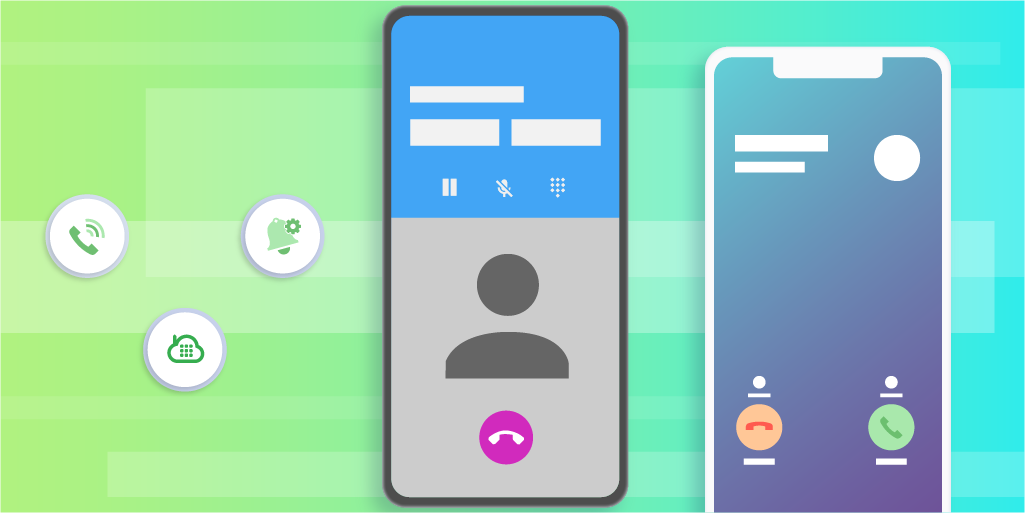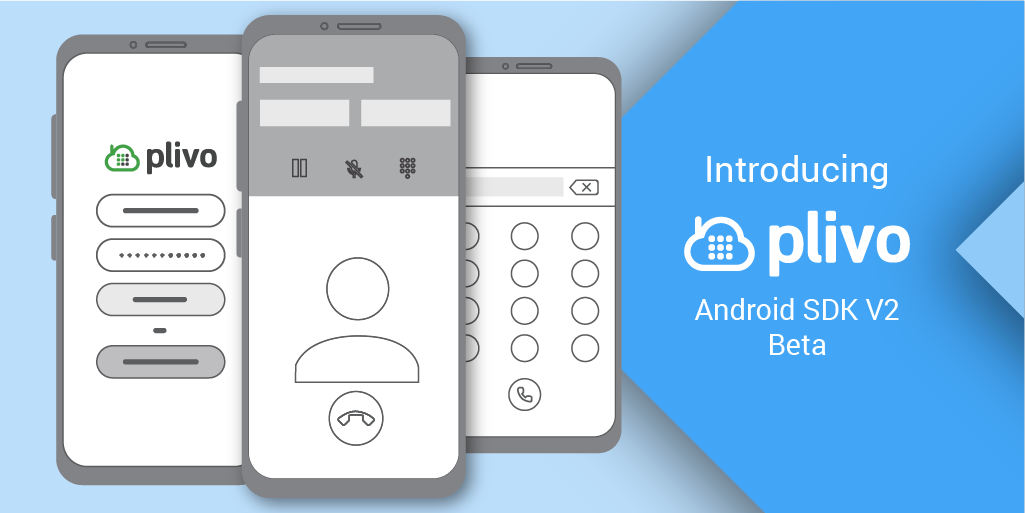
Embed Voice Calls into Mobile Apps with the Plivo Android SDK
-
Android SDK
- 01 Apr 2019
Last month we announced the general availability of our iOS SDK. Today we follow up with general availability of our Android SDK. Both enable you to quickly integrate voice calls with your mobile applications.
With Plivo’s Android SDK, you can bring the richness of voice conversation directly into a user interface, seamlessly connecting mobile callers via carrier networks. The Android SDK lets your mobile app access voice features such as conferencing, recording, and IVR.
Using the Plivo Android SDK for in-app calls offers several benefits:
Lightweight: Our SDK is more compact and consumes less battery and processing power than other solutions on the market.
Firebase integrated: With Firebase Push Notifications, users can be alerted of incoming calls even if the app isn’t open or is running in the background.
Ease of integration: Sample apps and detailed documentation let you integrate voice functionality within minutes.
Incremental version support: We’re compatible with Android Marshmallow and above, covering the majority of devices running on Android.
Your customers never want to miss a voice call. With our integration, you can programmatically control all the features of a regular call, including muting and unmuting, providing the ability to send digits to navigate IVR menus, placing a call on hold, and rejecting a call.
A mobile app that allows users to receive incoming calls has to make sure it can reliably deliver call notifications. Plivo’s Android SDK lets you reach users every time, no matter whether the application is in the foreground, background, or not running at all. It also handles any changes in the device’s network connectivity, so you can switch between Wi-Fi and cellular connectivity and navigate changed push notification permissions.
Mobile users value security and privacy. If your users need to interact over phone calls, it makes sense to keep their mobile numbers private. With in-app calling, calls are made over the VoIP network without using a cellular calling service. Caller and receiver can communicate via phone calls without revealing their real phone numbers. In-app calling lets you connect riders to drivers, clients to portfolio managers, or job prospects to hiring managers.
Another advantage of using a mobile voice application is access to more information about a phone call. A call from an app with a display name is more appealing than a call from an unknown or private number. Even better, service history information or app usage data could allow support representatives to serve customers better over app-based support calls.
Finally, mobile VoIP calls offer more options than regular voice calls. For example, you can create global conferences on the fly and invite members to join. You can also record calls for free and make international phone calls without worrying about hefty carrier charges.
Have a use case in mind? Talk to our sales and solutions engineering team, or just sign up for free and start coding.




